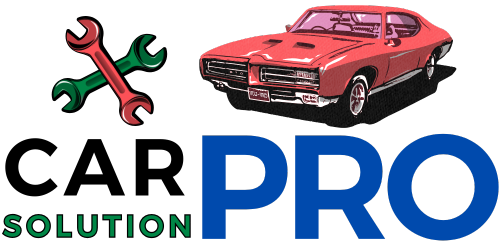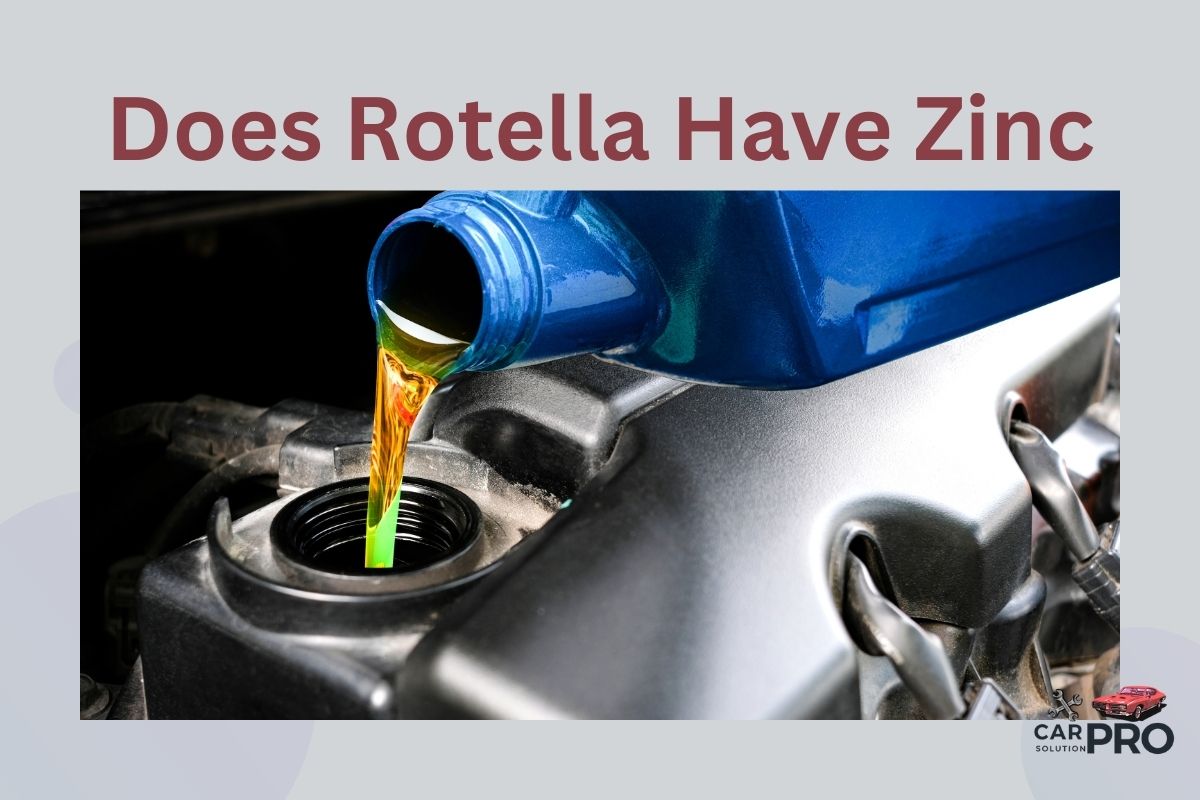Many car owners wonder about the zinc content in Rotella motor oils. Zinc is a key ingredient in engine oils that helps protect against wear and tear. Shell Rotella oils contain zinc, with most formulations having around 1200 parts per million (ppm) of zinc. This amount provides good protection for many engine types.
Rotella offers different oil lines, including T4, T5, and T6. Each has its own zinc levels and benefits. The T6 full synthetic oil, for example, contains zinc along with other protective additives like boron and phosphorus. These work together to guard engine parts against friction and damage.
Knowing the zinc content in your motor oil matters for engine health. But it’s not the only factor to consider. The right oil depends on your specific engine type and driving conditions. Rotella aims to provide balanced protection for various vehicles, from diesel trucks to passenger cars.
Key Takeaways
- Rotella motor oils contain zinc for engine protection
- Different Rotella products have varying zinc levels
- Choosing the right oil depends on your specific engine needs
Rotella Zinc Content
Rotella motor oils contain zinc as an important additive. The zinc levels vary between different Rotella products but all include this key ingredient for engine protection.
Importance of Zinc in Engine Oils
Zinc plays a crucial role in engine oils like Rotella. It acts as an anti-wear agent to protect metal surfaces. Zinc forms a protective layer on engine parts, reducing friction and preventing metal-to-metal contact.
This is especially important for older engines with flat tappet camshafts. These engines rely on zinc to protect the cam lobes and lifters from excessive wear.
Rotella oils contain zinc in the form of zinc dialkyl dithiophosphate (ZDDP). ZDDP breaks down under heat and pressure to coat metal surfaces.
Zinc as a Wear Additive
Zinc content varies across the Rotella product line. Rotella T4 15W-40 contains around 1150 ppm of zinc. This high zinc level makes it suitable for older engines needing extra protection.
The T5 and T6 formulations also contain zinc, but in slightly lower amounts. These synthetic blends and full synthetics use advanced additive technology to provide protection.
Rotella balances zinc content with other additives like phosphorus and boron. This creates a robust anti-wear package for diesel and gasoline engines.
For classic cars or high-performance engines, the higher zinc content in Rotella T4 may be preferable. Always check your owner’s manual for oil recommendations.
Types of Rotella Oils
Shell offers three main types of Rotella engine oils: T4, T5, and T6. Each type has unique properties and is designed for specific engine needs.
Rotella T4
Rotella T4 is a conventional mineral oil. It comes in 15W-40 viscosity grade. This oil provides good protection for diesel engines in various conditions.
T4 contains additives that help keep engines clean and running smoothly. It offers protection against wear, deposits, and oil breakdown.
The zinc content in Rotella T4 is noteworthy. It typically contains about 1200 ppm of zinc. This level of zinc helps protect engine parts, especially in older vehicles.
T4 is a popular choice for heavy-duty diesel engines. It’s also suitable for some gasoline engines that require this viscosity grade.
Rotella T5
Rotella T5 is a synthetic blend oil. It comes in two viscosity grades: 15W-40 and 10W-30. This oil offers improved performance over conventional oils.
T5 provides better low-temperature flow compared to T4. This helps protect engines during cold starts.
The synthetic blend formula of T5 offers enhanced oxidation resistance. This means the oil can maintain its protective properties for longer periods.
T5 is designed for both diesel and gasoline engines. It’s a good choice for mixed fleets or vehicles that need extra protection.
Rotella T6
Rotella T6 is a full synthetic oil. It offers the highest level of performance among Rotella oils.
T6 comes in different viscosity grades, including 5W-40. This allows for excellent flow in cold temperatures and strong protection at high temperatures.
The zinc content in T6 5W-40 is approximately 1200 ppm. This level provides good protection for engine components.
T6 offers excellent wear protection and deposit control. It can help improve fuel economy in some engines.
This oil is ideal for modern diesel engines with emission control systems. It’s also suitable for high-performance and heavily loaded engines.
Zinc Levels in Rotella Products
Rotella oils contain zinc to protect engine parts. The amount varies between different Rotella products. Engine types and industry standards influence zinc levels in these oils.
Comparative Zinc Levels
Shell Rotella T6 5W40 oil has around 1200 PPM of zinc. This matches the company’s claims. T6 5W40 and 15W40 oils both have close to 1100 PPM zinc content. Other Rotella products have similar zinc levels.
Rotella T4 15W-40 contains about 1200 ppm zinc and 1100 ppm phosphorous. This information comes directly from Shell’s technical team.
Rotella T4, T5, and T6 all contain zinc. The exact amounts may differ slightly between products. Zinc works with other additives to protect engines.
Meeting Industry Standards
Rotella oils meet or exceed industry standards for zinc content. These standards ensure proper engine protection.
API CJ-4/SM specification requires certain zinc levels. Rotella T 15W-40 meets this spec with its zinc content. This helps it protect a wide range of diesel engines.
Rotella balances zinc levels to protect engines without causing harm. Too much zinc can damage catalytic converters in some vehicles. Rotella’s formula aims to provide the right amount of protection for each engine type.
Rotella Formulations and Engine Types
Shell Rotella offers different oil formulations to meet the needs of various engine types. These formulations contain different zinc levels to provide optimal protection and performance.
Diesel Engines
Rotella oils are designed for diesel-powered vehicles and equipment. They contain higher levels of zinc to protect against wear in heavy-duty engines. Rotella T4 is a conventional heavy-duty oil that provides strong protection for diesel engines.
The zinc in Rotella acts as an anti-wear agent, forming a protective layer on metal surfaces. This helps reduce friction and extend engine life in demanding diesel applications.
For modern diesel engines with advanced emissions systems, Rotella offers low-ash formulations. These oils balance protection and compatibility with exhaust aftertreatment devices.
Gasoline Engines
While primarily made for diesels, some Rotella oils can be used in gasoline engines. Shell Rotella T6 is suitable for certain gasoline vehicles, provided the viscosity matches the engine requirements.
Rotella T6 contains zinc and phosphorus, which can benefit older gasoline engines with flat tappet camshafts. These engines often need higher levels of these additives for proper valve train protection.
It’s important to note that Rotella’s high detergent content may reduce the effectiveness of zinc and phosphorus in gasoline engines. For this reason, some experts recommend caution when using Rotella in flat tappet gasoline engines.
Impact of Zinc on Modern Engines
Modern engines have changed how they use zinc. Most new cars don’t need as much zinc in their oil as older ones did.
Zinc helps protect engine parts in older cars. It forms a layer on metal surfaces to reduce friction and wear. This was key for flat tappet camshafts common in older engines.
Today’s engines often use roller camshafts instead. These don’t rely on zinc as much for protection. Modern engines can run well with less zinc in their oil.
Too much zinc can harm some newer cars. It may damage catalytic converters, which clean exhaust gases. Car makers have cut back on zinc to protect these parts.
Oil companies have adjusted their formulas. Many now make oils with less zinc for new cars. But they still offer high-zinc options for older vehicles.
Drivers should check their car’s manual. It will say what type of oil to use. Using the right oil helps keep engines running smoothly and safely.
Frequently Asked Questions
Zinc content varies across different Rotella oil formulations. The amount of zinc affects engine protection and performance in both diesel and gasoline engines.
Is zinc an additive in Rotella T4 15W40 motor oil?
Yes, Rotella T4 15W40 contains zinc. Shell Rotella T 15W-40 typically has about 1200 ppm of zinc. This zinc level provides wear protection for diesel engines.
How does the zinc content in Rotella T5 compare to other motor oils?
Rotella T5 has a moderate zinc content. It falls between conventional oils and fully synthetic options. The exact amount can vary by viscosity grade.
What is the concentration of zinc in Rotella T6 synthetic oil?
Rotella T6 synthetic oil contains zinc additives. The exact zinc level in Rotella T6 5W-40 is not publicly disclosed. It provides strong wear protection for diesel engines.
Are there high levels of zinc in the Shell Rotella T1 SAE 30 formulation?
Information on zinc levels in Rotella T1 SAE 30 is limited. As an older formulation, it may have higher zinc content than newer oils. Specific data is not readily available.
Can Shell Rotella T4 10w30 be used in gasoline engines due to its zinc content?
Rotella T4 10w30 can be used in some gasoline engines. Its zinc content offers protection for older engines. Users should check their vehicle manual for compatibility.
Which motor oils are known for having a high zinc content?
Rotella oils are often recommended for older engines due to their zinc content. Other high-zinc oils include some racing oils and specialized classic car formulations. Diesel-rated oils typically have higher zinc levels than standard gasoline engine oils.


